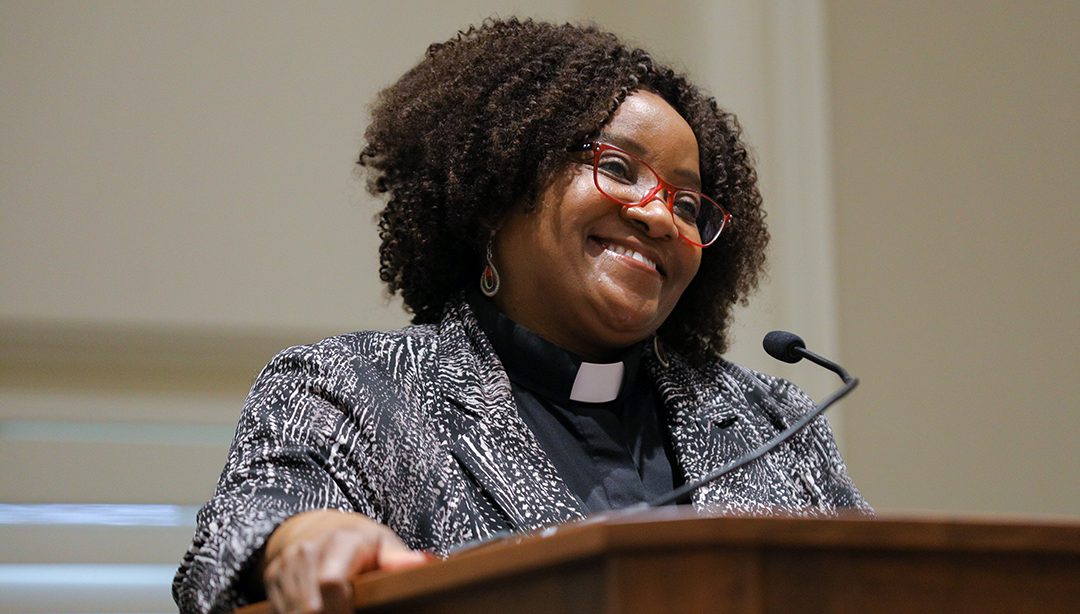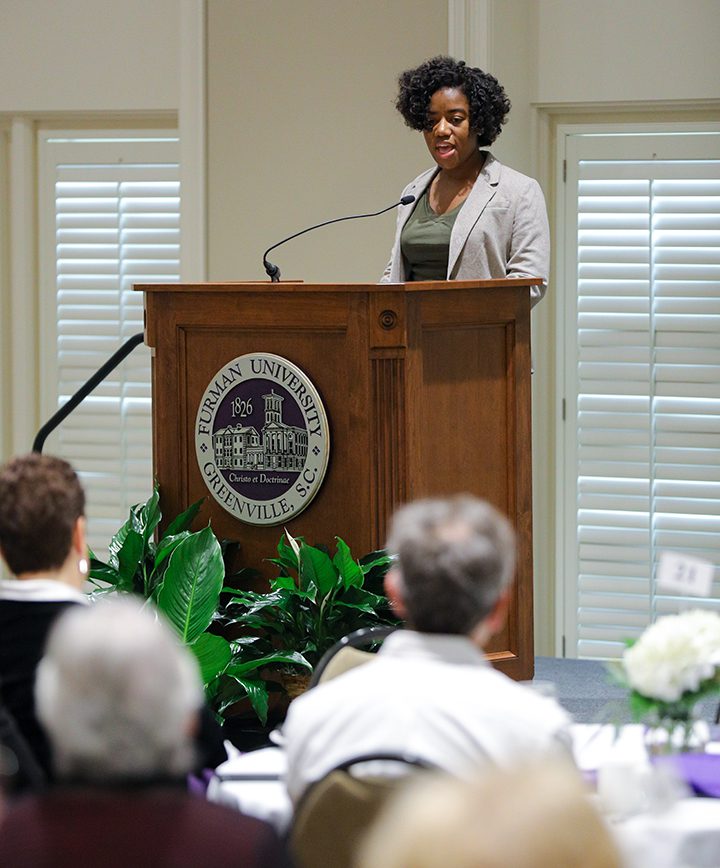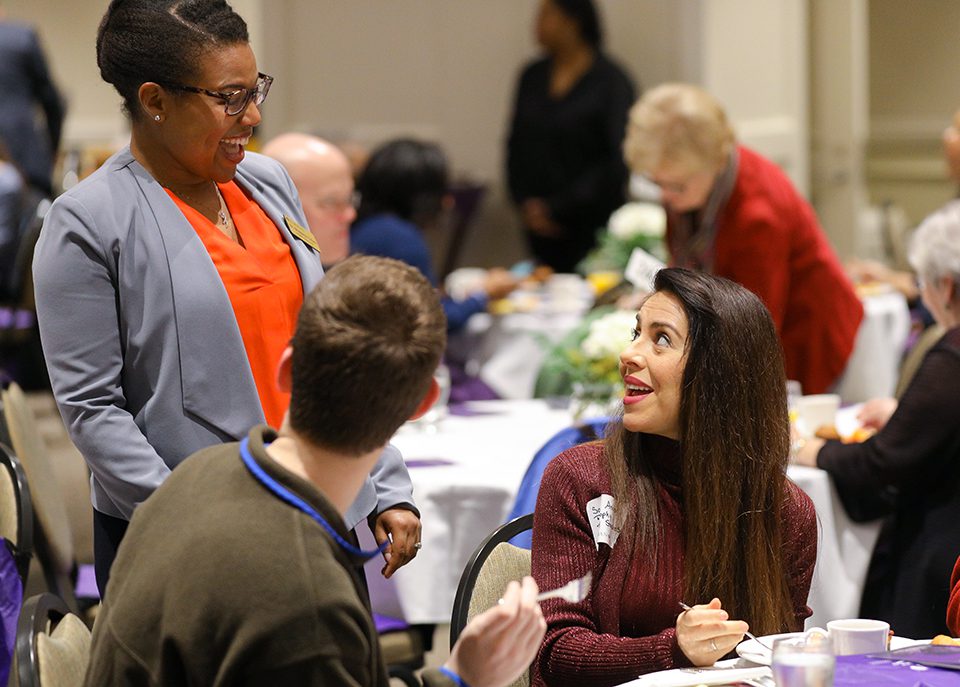Truth and reconciliation

Truth is the only road to genuine racial reconciliation, Nontombi Naomi Tutu said Friday. And then she laid some ground rules: Truth with ourselves, truth with the community and truth with the next generation.
“We have to start by telling ourselves the truth–the truth of where we come from, the truth of the parts of our story that are not beautiful … all of it,” she said.
Tutu is the daughter of Archbishop Desmond Tutu. She was born in South Africa, and her experiences there and abroad laid the groundwork for her life as a human rights activist.
Her presentation was itself an exercise in truth-telling among community, as a widely diverse audience from across Greenville–including political leaders, non-profit representatives, neighborhood activists and many from the Furman family–listened and laughed and ultimately rose to their feet for her message.
About 275 people attended the breakfast at the Younts Conference Center. The event was one part of the university’s broader MLK celebration, Building the Beloved Community.

Shekinah Lightner ’20, president of Furman NAACP, speaks to breakfast attendees.
Shekinah Lightner ’20, president of Furman NAACP, spoke to the group shortly before Tutu.
The community “needs citizens who will rebel against the notion that the success of the individual is more important than the success of the community, because the two are inextricably linked,” Lightner said.
Tutu began her remarks by addressing Lightner and Tyana Davis ’21, who brought tears to many eyes with her acapella rendition of “His Eye is on the Sparrow.” Tutu called the younger women’s work “amazing” and “awesome.”
“I see today black girl magic,” she said. The audience agreed with loud applause.
Tutu’s key note presentation, Truth & Reconciliation: Healing the Wounds of Racism, was built around lessons she learned watching South Africa’s Truth and Reconciliation Commission conduct its work as the country began its post-apartheid life.
Her first reaction to horrific accounts of torture and murder was, “Thank goodness I’m not like that.” But then she began to wonder what was buried inside her humanity.
“It does not help us to put the evil out there on that ‘other,’ … we need to accept that that possibility of evil resides in each of us,” Tutu said. “Given the right circumstances, almost all of us are willing to impose suffering on other human beings.”
The second, more hopeful, lesson came as she listened to survivors and victims’ families choose, as compensation for unimaginable pain, services that would benefit their communities, not themselves.
“These were not people who were born with a saintly gene that the rest of us don’t have,” Tutu said. “Who they were was tied up with who their community was … each of us can be that person.”
These first lessons were intensely personal. But Tutu also began to see the importance of truth within a community–or a state or a nation.

Faculty, staff, students and community members attended the breakfast which is part of Furman’s MLK celebration “Building the Beloved Community.”
“You cannot pick and choose your history,” she said. As an observer and then a parent of school-aged children, she was and remains troubled by history education in the United States.
“Much of history in this country is taught to make us proud,” she said. The next generation will not be prepared to live in and work for a more just world “if we don’t share with them the times and experiences when human dignity did not apply to all.”
Finally, through a young white man who acknowledged that his ignorance of what had been happening all around him was willful, Tutu learned we all choose which truths we will see in ourselves and our communities. She urged the audience to make the courageous choice and acknowledge the difficult truths.
“When we find the courage to tell our own truth and to listen to the truth–particularly to truth of those we know as ‘other,’ then we can start the path of reconciliation,” she said.
Read Shekinah Lightner’s remarks or view the full schedule for Furman University’s Martin Luther King, Jr. Commemoration.